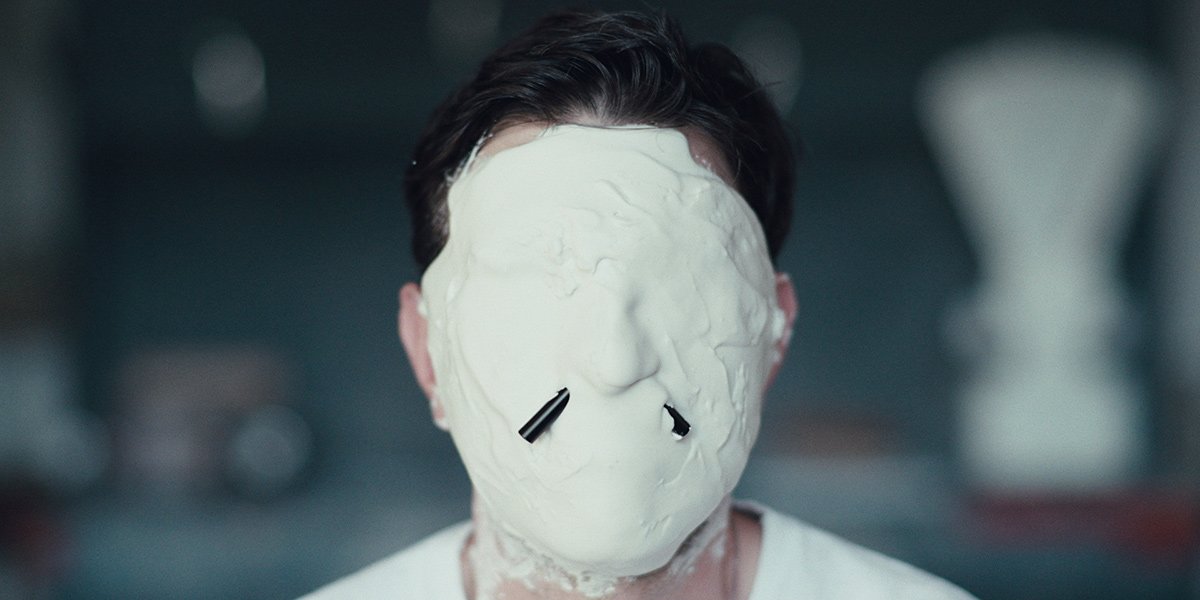TIFF 2024 | Movie Review: "Sad Jokes" Leaves Much To Be Desired
6/12 ForReel Score | 2.5 Stars
Fabian Stumm’s second feature, Sad Jokes, opens with a familiar scene of domesticity: Sonya (Haley Louise Jones)—son on one hip, groceries on the other—is preparing for a very special dinner. Standing by the kitchen doorway, the camera sentimentally gazes on as Sonya delivers a brochure-worthy performance of motherhood. All seems well until Joseph (Stumm) rushes into the frame, followed by a family friend, then by the woman’s mother. Concern is inflected in all their voices; something is out of joint. As it turns out, Sonya is a volatile mental-health clinic escapee who had taken her son without telling anyone. The tender atmosphere, felt just minutes ago, suddenly turns uncanny.
Image courtesy of TIFF
Joseph, we learn, is a 38-year old director of ambiguous success; he is also a gay man and the biological father to a little boy, conceived with his best friend Sonya. The film focuses on his struggle to balance his career, baggage with an ex-lover, and platonic partnership with Sonya.
Sad Jokes’s inaugural half is weighted by a heavy domestic angst. With Sonya away at the clinic, Joseph is forced to assume all the household and parenting duties, an attrition which whittles his spirit. Sonya, however, refuses to cooperate with her treatment; frequently, she runs away from the program and appears in front of Joseph’s doorstep—much like the opening sequence—begging for her enfranchisement. Sonya’s outbursts are as uncomfortable to witness as they are compelling. In a particularly intense scene, for example, she suddenly emerges at the house to recount the sublime joy of holding their newly-born son in her arms. Jones performance here is Baroque; painted in chiaroscuro by the kitchen light, her facial expression whips from agony to ruefulness to languor as she relives her most treasured memory. Jones’ impression touches the heart deeply.
Just as this idiosyncratic family drama is about to ripen, Sad Jokes careens towards an unusual direction. A scene where Joseph pitches an absurdist comedy to his producer, a departure from his typical repertoire, flips Sad Jokes’s narrative. Subsequently, the film shifts its thematic focus from the flawed domestic unit onto Joseph’s journey of self-discovery: Sonya and their son thus become distant stars, outshadowed by Joseph’s centrality.
Image courtesy of TIFF
Joseph—a diegetic stand-in for Stumm—later makes the absurdist comedy parallel his own life and commissions a giant bust of his image. The result is a mise-en-abyme of Stumm’s portrait: a film about the filmmaker making a film about the filmmaker. This self-centralization is one of many reasons why Sad Jokes’ interiorized fold feels narcissistic. What was initially a nuanced foray into queer kinship and mental health thus turns into another film about a mediocre artist and his ‘insightful’ depths—as if cinema needed any more of these.
With such a compelling premise, Sad Jokes could have prised at the complexities of a ‘modern’ not-so-nuclear family. Instead, it chose to focus its runtime on a boring middle-aged man in a vaguely relatable middle-class crisis. A moment of silence for what could have been.



